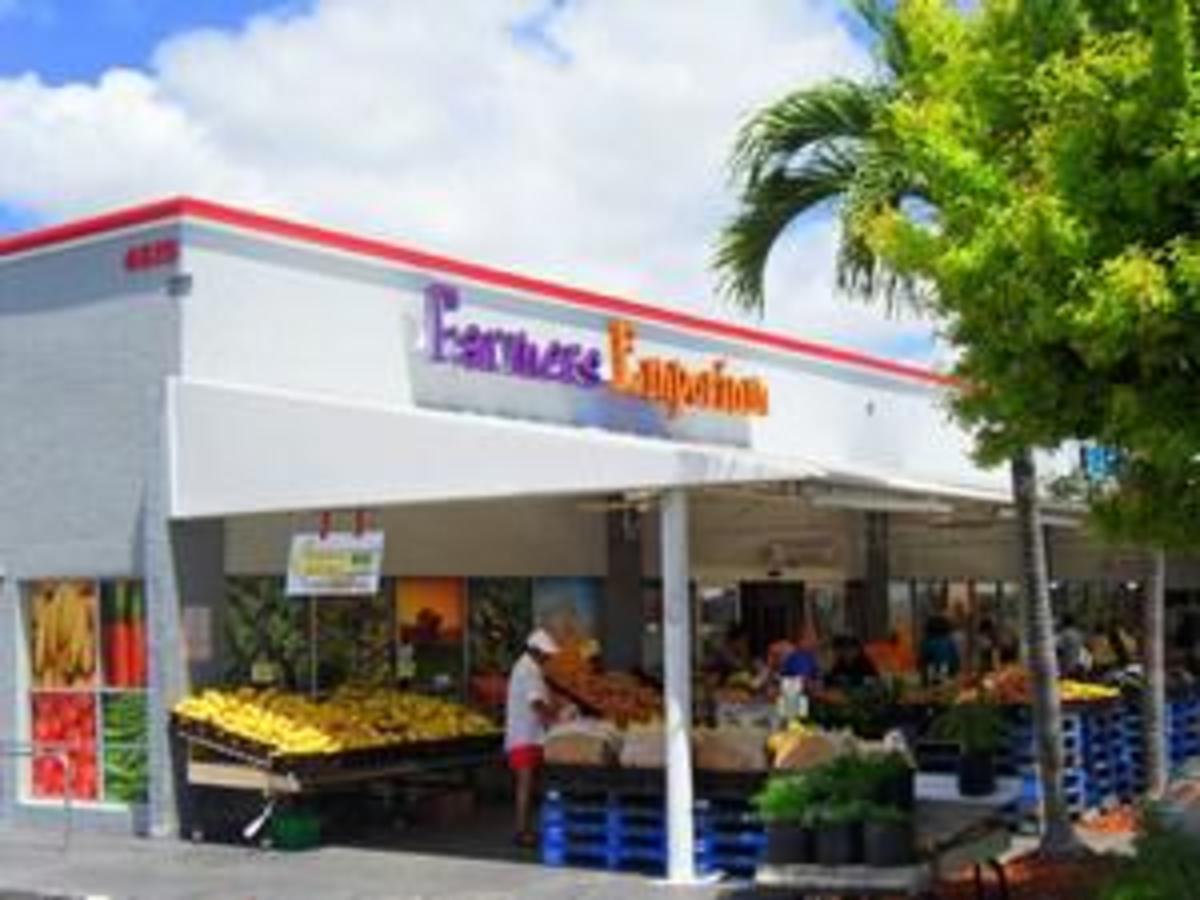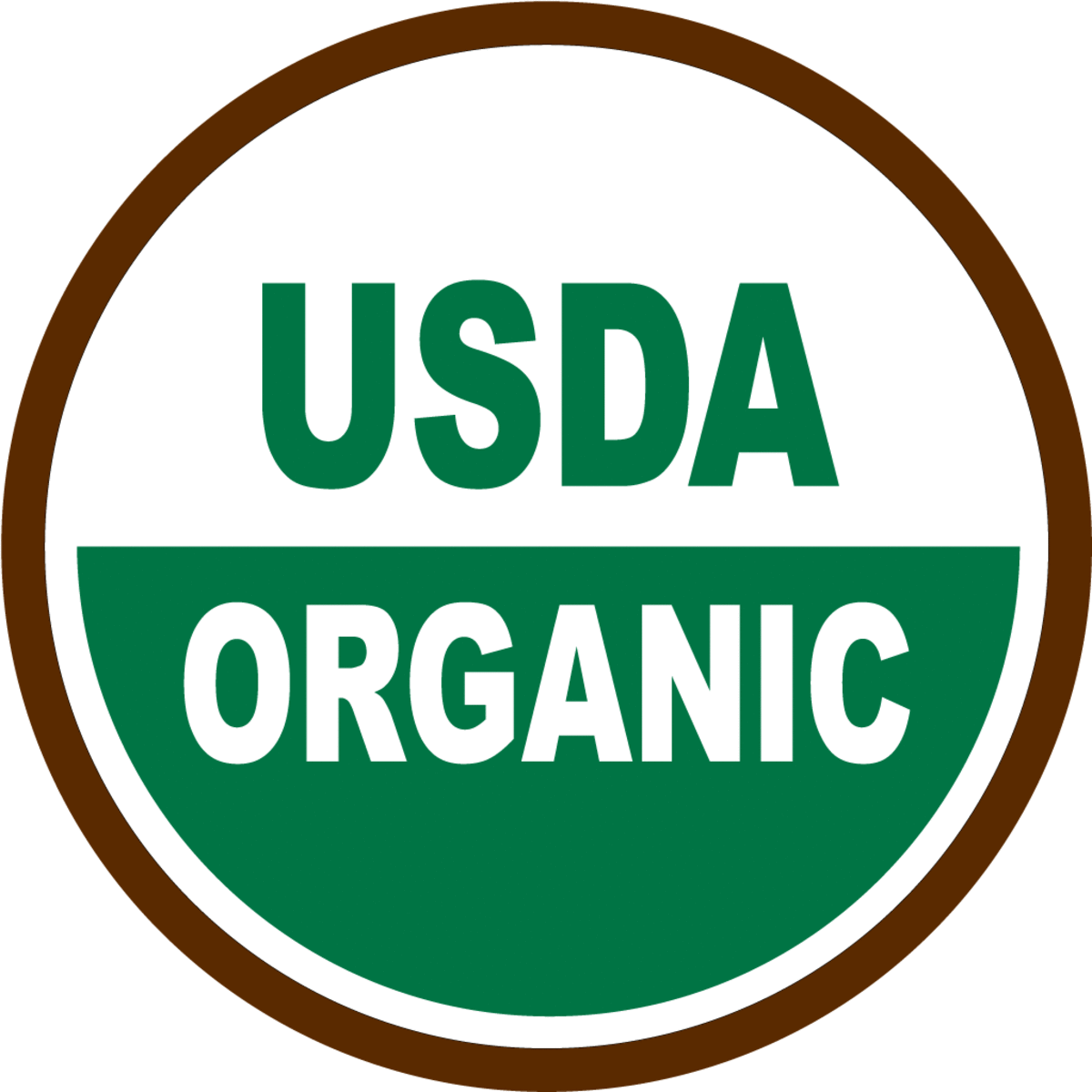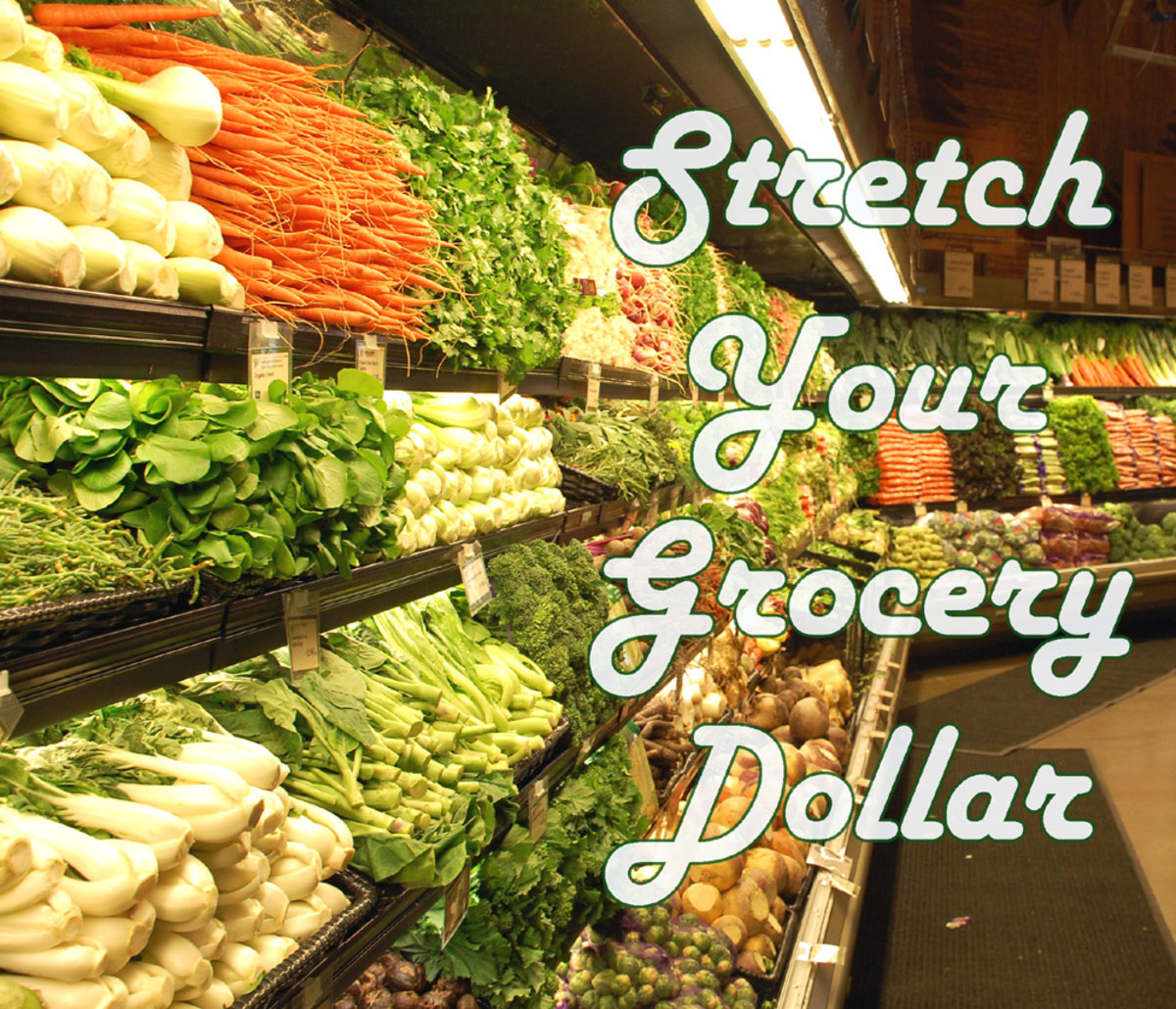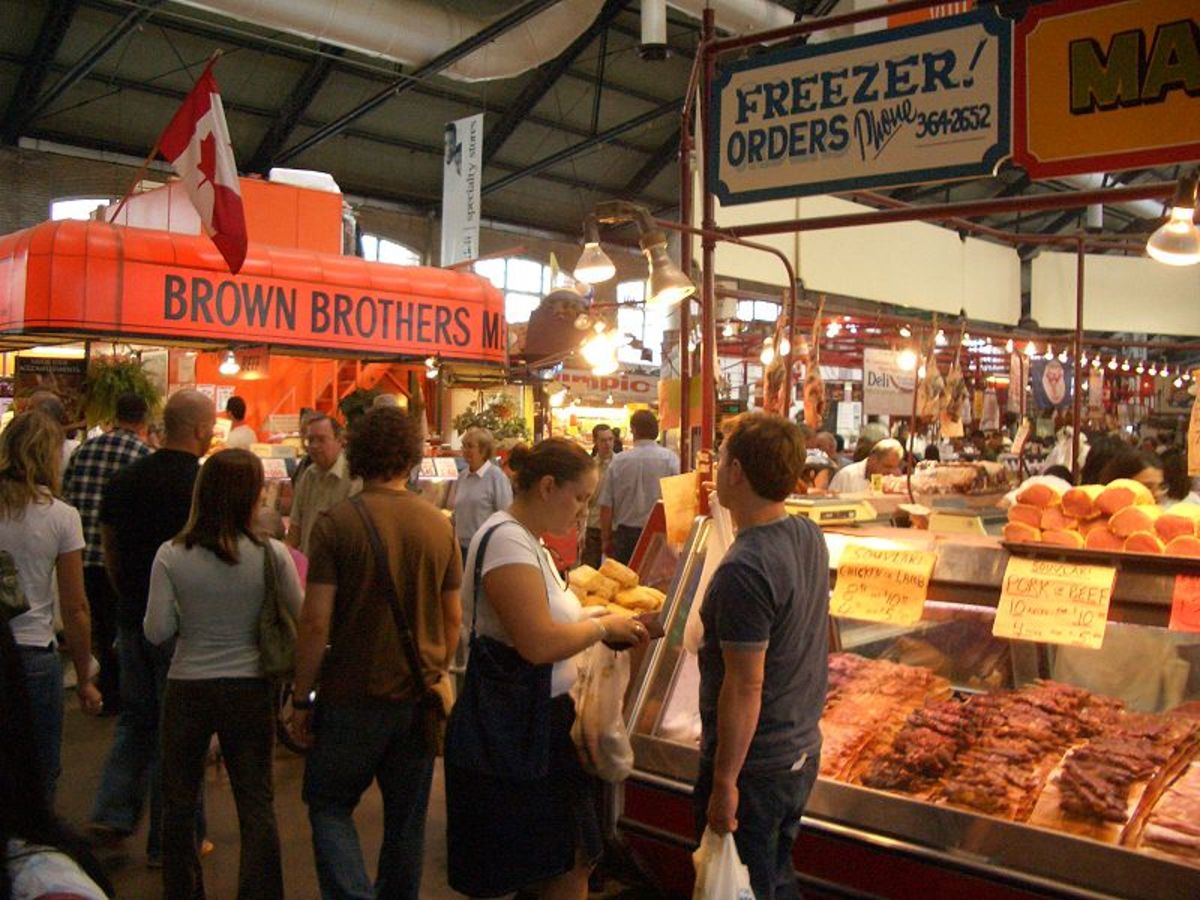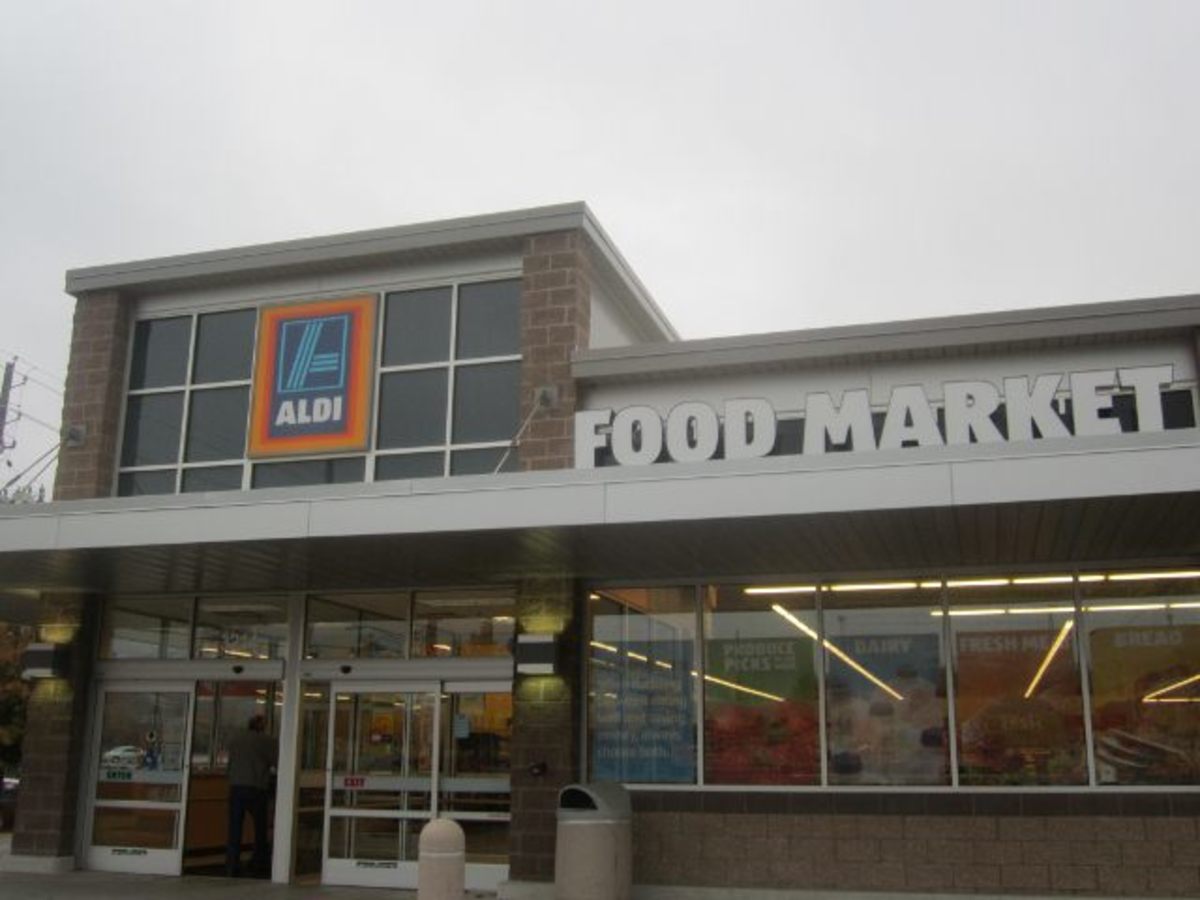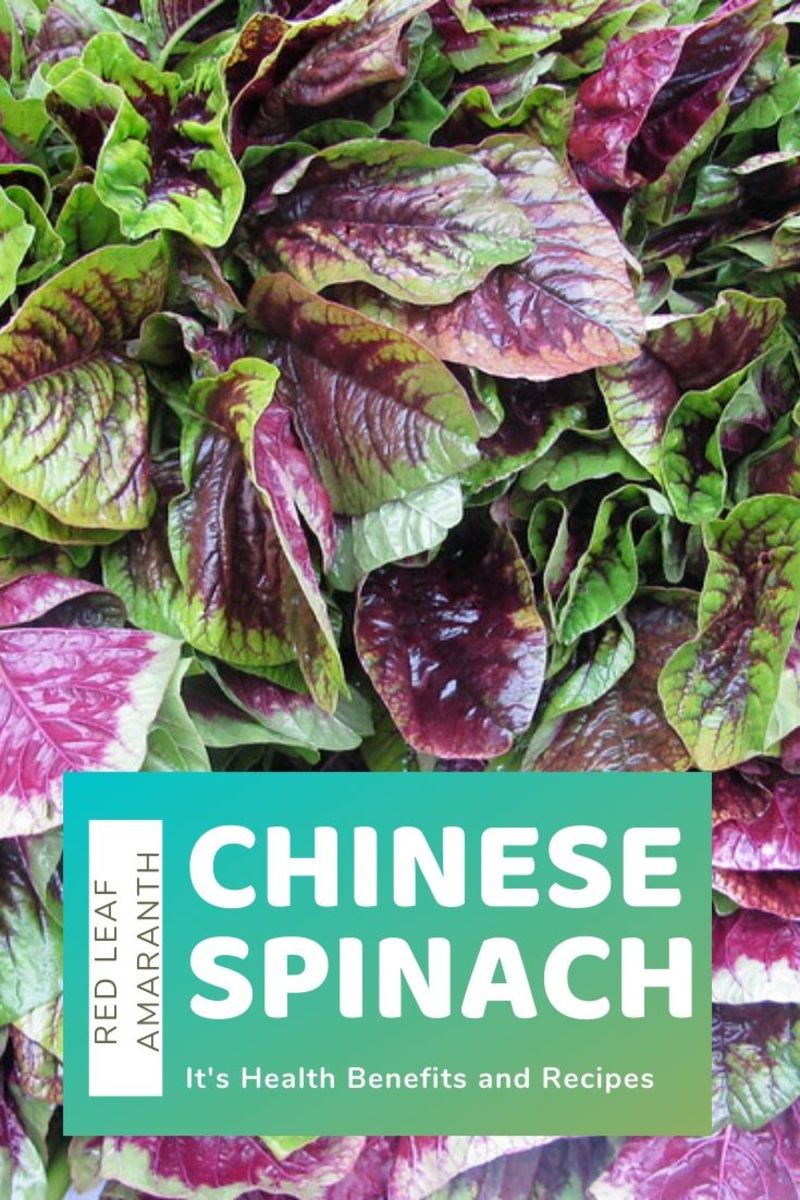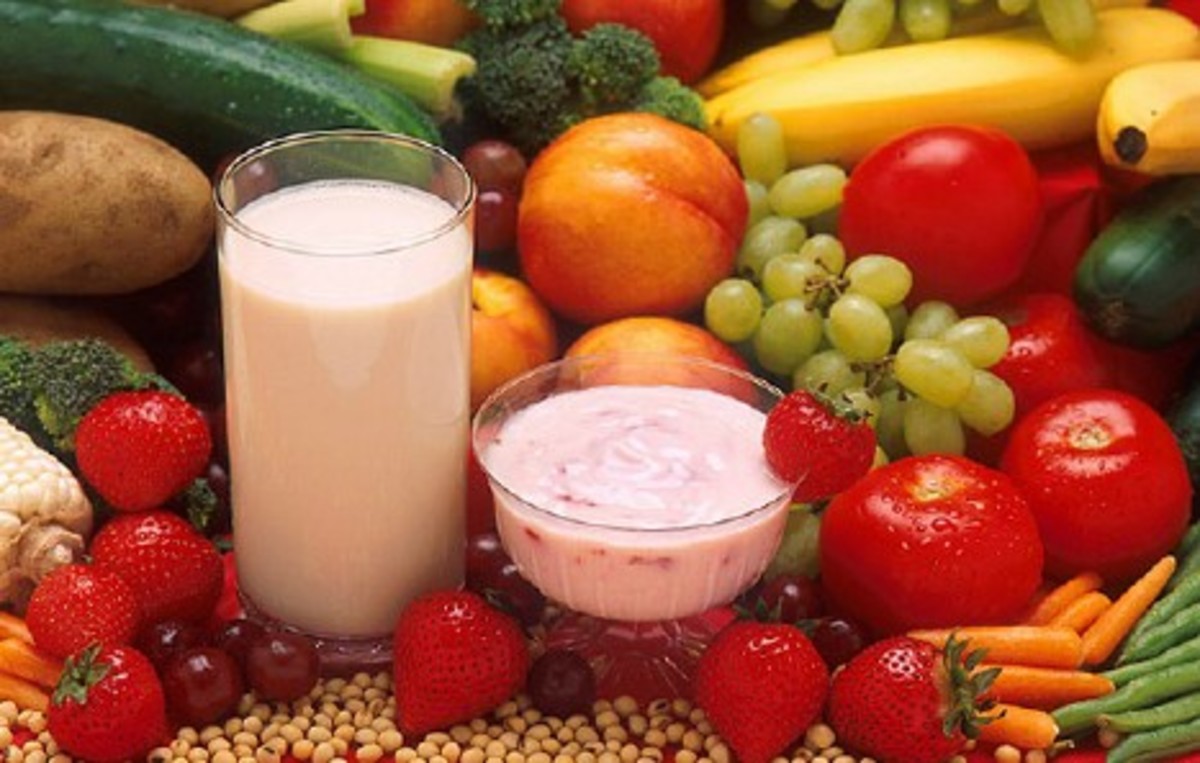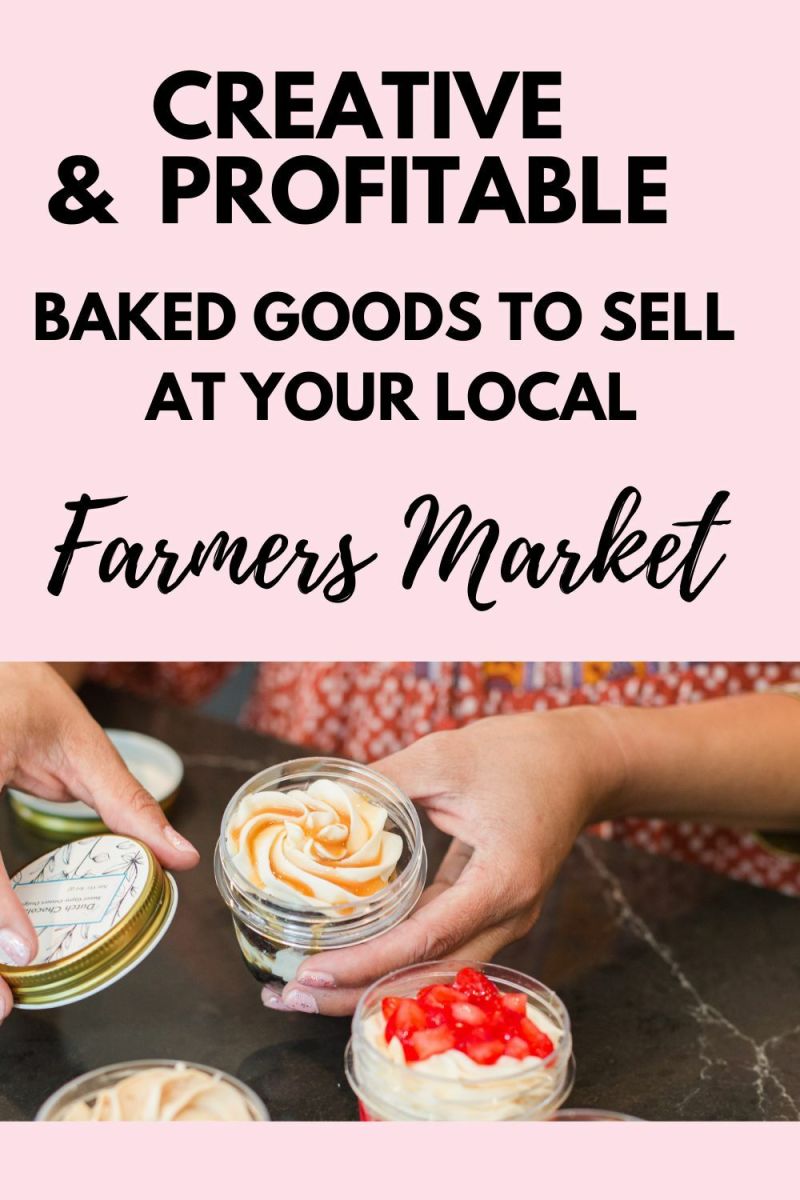Buying Produce at the Farmer's Market
Farmer's Markets
Farmer's Markets provide quality produce to communities all over the country. Most large cities have a few Farmer's Markets which operate on a weekly basis. Shopping at a Farmer's Market is a great way to purchase fresh fruits and vegetables on any budget.
There are many advantages to purchasing produce at a Farmer's Market rather than a traditional grocery story.
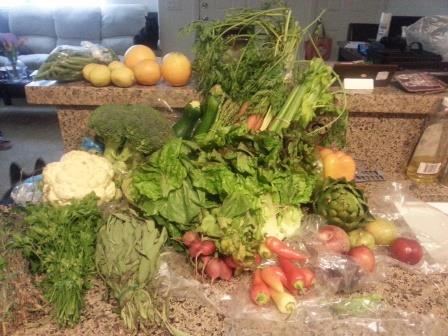
Price
The biggest advantage to shopping at a Farmer's Market is the price. I got all of the food in the picture above for under $30! I bought enough fruits and vegetables for the entire week. If you can't tell from the picture, I got two different types of lettuce, a head of broccoli, a head of cauliflower, an artichoke, a pound of green beans, a bushel of asparagus, a half dozen plouts, some lemons, oranges, carrots, celery, bell peppers, radishes, hot peppers, zucchini, and three different fresh spices. All of this food would have cost me over fifty dollars at my local grocery store, if I was even able to find it.
Freshness
The Farmer's Market also provides fresher fruits and vegetables than can be found in a grocery store. I have purchased many of these items at a grocery store only to have them go bad after a day or two. I used to avoid purchasing fresh vegetables because they would start to rot before I ever got a chance to use them; usually within a few days of purchase. The vegetables that I purchased from the Farmer's Market were so fresh that the smell of bell pepper filled my kitchen as I cut into it. I have never been able to smell a freshly cut bell pepper from the super market without putting it right up to my noise. It has been almost a week since I have made these purchases at the grocery store, and the majority of the fruits and vegetables (that are left) are still fresh.
Non-GMO, Local, and Organic
The great thing about a Farmer's Market is that virtually all of the food is locally sourced, organic, and GMO (Genetically Modified Organism) free.
I have read a lot about the possible links of GMO foods to cancers and disease. These items are still fairly new, so there haven't been a lot of studies that can show the long term impact that these foods have on health. There is a debate raging right now about the safety of these foods, as they have many supporters and many people who are adamantly against them.
The greatest producer of GMO foods, Monsanto, has been in the news a lot lately due to congressional bills and court rulings which offer the company unprecedented protections. They can now own the patents to food crops, even those which get cross-pollinated by bees, and they have the legal standing to be able to continue to plant these food crops without USDA regulation even if health issues may arise in the future. They also don't have to label their products as being genetically modified. In addition, it is important to note that many former Monsanto associates are now high ranking members of USDA and FDA. These are some of the reasons why so many people are against genetically modified food, and Monsanto in particular. Below I have included some links to further reading on the GMO issue. I tried to provide one link to each side of the issue, as well as a link to further research on the topic for those who are interested.
In addition to being free from GMOs, produce at a Farmer's Market is locally sourced. Shopping at the Farmer's Market supports your local economy and supports the individuals in your neighborhood. It supports small, local farming.
The final benefit of shopping at a Farmer's Market is that the produce is generally pesticide fee. You are ensuring that the food you put into your body is not laced with chemicals. I haven't researched any correlation between these chemicals and the rise of cancer and other debilitating illnesses that we are plagued with today, but I do not think that I need to do this research. If a product is meant to kill insects or any other living creature, that product is probably not safe for ingestion. It may not be deadly in small amounts, but the long term health affects can not be positive.
Another great thing about the Farmer's Market is that if you have any questions or doubts about the products, the farmer is usually right there selling the food. You can ask them directly. You can't get that kind of service at a grocery store.
For more Reading on GMO food
Disadvantages to Farmer's Market
Not every system is perfect. Although I am a big fan of the Farmer's Market, I wouldn't be objectively reviewing them if I didn't address the possible disadvantages of going to a Farmer's Market.
1. Bugs. This is the big one. When food is grown organically, there is always the possibility that insects will lay eggs either in or on the food. Once you get past the "ick" factor, you realize that this really isn't that big of a deal. First, most foods only have insects on them (not in them), so in most cases if you just wash the vegetable before use, you will rinse off whatever critter may have been there. Second, for those nasty internal feeders, you will generally see evidence of the bug on the outside of the fruit. These fruits can easily be avoided.
I know what you are thinking..."BUGS??? GROSS!", but that is the "ick" factor in which I was referring. We do think of bugs as gross. However, think about this logically. Which is worse, eating a natural insect or eating unnatural chemicals? Many cultures utilize insects in their cuisines. Many other animals eat insects. They are healthy and provide extra protein. The chemicals used to keep insects away are unhealthy and have unknown effects on our health. Is their a correlation between the rapid increase in cancer and the prevalent use of pesticides on all of the produce that we consume? I do not know the answer to that, but I know that if it kills insects, it probably isn't good for us either.
2. Convenience. Another problem with the farmer's market is that they aren't always convenient. Even in my area, most of them are held during the week while I am at work. There are a few that are held on the weekends, but they are usually a bit of a drive away. Most Farmer's Markets are only held once per week, and if you are busy this day, you are pretty much out of luck. They also may not be as close to your home or work as a regular grocery store. I think the inconvenience of traveling a little further is greatly outweighed by the positives listed above, but I do understand that everyone's situation is different, and this may not be feasible for some.
Farmer's Markets are great
I believe that utilizing a Farmer's Market is the best way to purchase produce. The food is fresh, organic, natural, and very reasonable priced.
Let me know how you feel about the Farmer's Market or GMO foods!


